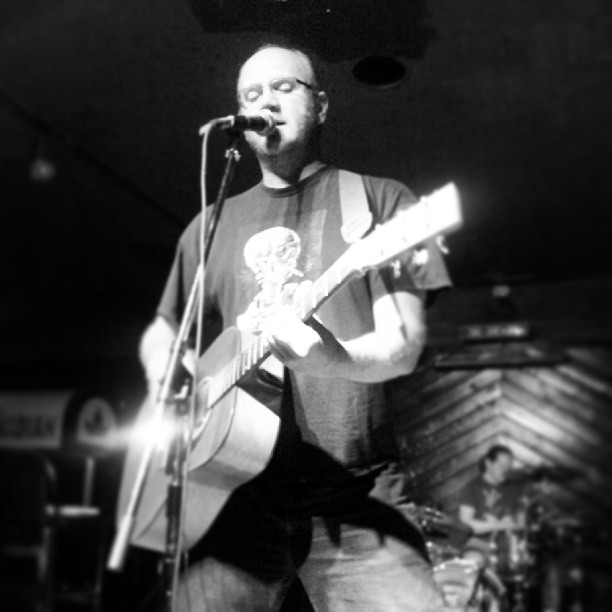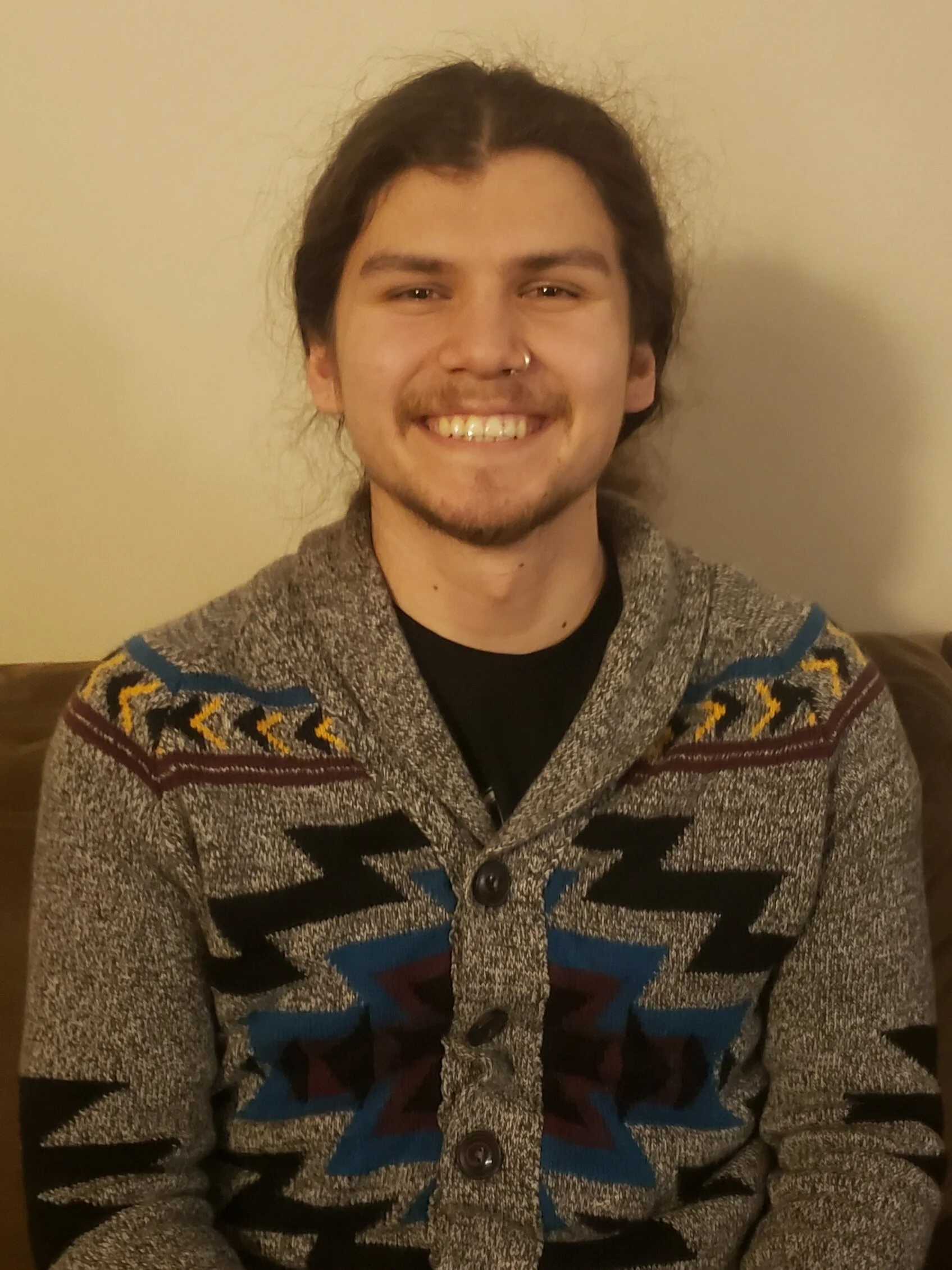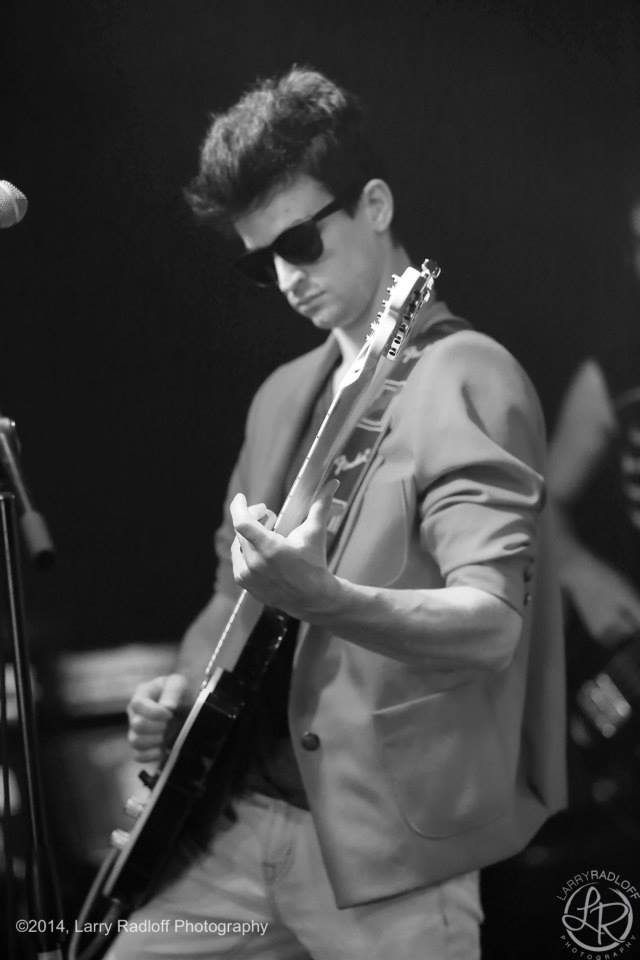Instruments: Drums, Bass, Guitar, Keyboard, Voice (and some flute)
Genres: Danceable Lap Pop, LoFi Silly Songs, New Wave, Acid Jazz, Grunge and More
Joel Klaverkamp is the mastermind behind the varying styles of beefdonut. After a short and sweet introduction and interview, I could immediately tell he is a relaxed and laid back dude. His musical CV is all across the map when it comes to genres and musical styles so the best thing you can do it check out his soundcloud and hear them for yourself. I promise you won’t be disappointed!
Ashley: Can you tell me a bit about yourself?
Joel: I’ve played for a long time in the Winnipeg music scene. I played bass in Skingerbreadman and bass in The Hummers. I also played keyboard in Drums and Wires and I played guitar and everything with beefdonut which is sort of just me and my songwriting. I also play drums for people like A La Mode and Boats.
Ashley: So where did the name come from?
Joel: I worked at HMV a long time ago and I worked with a friend of mine who brought donuts from sears and they tasted like they were deep fried in oil that had deep fried beef so it had this disgusting flavor to it. We started calling them ‘beef donuts’ and later on I thought it would be a pretty good name so I took it.
Ashley: How often are you practicing your instruments?
Joel: The correct answer is not often enough, but it also ebbs and flows. Lately I’ve been practicing drums a lot more because A La Mode was preparing for Real Love summer fest and a show at the Handsome Daughter. It all depends on which gig is coming on. I am mostly practicing for shows three times a week.
Ashley: What is a practice or jam session like with the band?
Joel: It depends on the project, if its very collaborative it’s very magical. I try to respect that magic and allow it to happen and that’s one of the main reasons I play. If it’s not collaborative, if it’s someone else saying theses are the parts or if I’m saying these are the parts it tends to be not as magical and a bit more technical. You have to actually figure out their vision or you have to try to communicate your vision [to others] so it’s less just “letting it happen.”
Ashley: And with beefdonut, how do you perform your music? Do you do it solo or do you book musicians?
Joel: It depends, we played at Graffiti Gallery and it was a whole new line up. I got flute synth parts, electric guitar, backing vocals and percussion, synth and drums and it’s got a bigger band and dance focus. The last record I did was very grunge rock themed where there are very little dynamics. It was a four piece [set-up]. Before that I have done performances alone with laptops but I don’t really like that; I’ve also had guitar loops solo shows where I’ve had a guitar loop pedal and play. It can be whatever. I’ve also done a lot of recording for sound track work mostly for modern dance shows so a lot of the times I’ll be live mixing that while the show is going so the sections all match up with each other. It really depends.
Ashley: What is the most stressful part about being a musician?
Joel: I’m really easy going and relaxed in general so there really isn’t anything that stresses me out about music that I can think of. For me, that’s the fun part.
Ashley: Then who inspires your music?
Joel: That changes a lot. Currently I’m really inspired by Goat and Thee Oh Sees although if I had to pick, in the past I would have said Bjork or Prince. But now I would have to say James Murphy. The stuff he makes is just perfect in my mind. If you were to break it down into actual quantifiable metrics, thearrangement of the song, the tones of the instruments, the lyrics, the melodies and everything about what he does is matched in my DNA for music.
Ashley: So then what is your songwriting process?
Joel: I don’t have one. Nope, I just sit down and let them come out. I don’t think of them as coming from me.
Ashley: Is it what’s in the your head and you put it out there?
Joel: Yes the music will usually come to me, usually on the bus, and I’ll write down the words I’ll hear. I’ll try to keep the melody in my head until I’m near an instrument and try to figure it out. Usually by then it’s somewhat changed or I don’t get it exactly right.
Ashley: Would you say your music is more lyrically or melody based?
Joel: Oh definitely not lyrically based. Although a lot of times the music will start with one lyric or one phrase that comes into my head and it will have a melody attached to it already and I’ll just build on that.
Ashley: What accomplishments with beefdonut are you most proud of?
Joel: I recently won an award for ‘Best Music for a Short Film’ that was in a film festival. The film is called Alice and Kevin; it’s a really touching movie, really well done. It’s about a mom and her son and the son has I believe its cerebral palsy; basically he has special needs and she lives on a reserve with him and she’s not getting the same level of health care that she would get if she lived in the city. She’s filed a human rights claim and she’s just found out she has cancer and has a limited amount of time to live. She feels that if she’s gone then he’s not going to get the proper care to live without her. It’s a very powerful story and it’s true. It’s a documentary. I didn’t even know it was in festivals and I got a check in the mail and it said ‘Best Music’ from the Nanaimo Arts Council.
Although that said, that would be for beefdonut. For other projects I’ve been in, I’ve been doing [music] for a long time but playing at Folk Fest with The Hummers in 2007 was probably the highlights. We went on we were supposed to play for maybe an hour long set but we ended up playing from 3:00am to sunrise. There were just thousands and thousands of people, it was a lot of fun.
Ashley: What’s your favorite song to perform?
Joel: My favorite song to perform is Signs of Seasons. I also really like performing with Robo Jam; which is a band I play drums in. We have a lead vocalist/dancer and a keyboard player and we use prerecorded loops and a software that generates music and it’s a lot of fun. It’s very theatrical and we all dress up like robots. It’s a high-energy band and the crowd reaction is pretty good.
Ashley: How do you balance with your other obligations?
Joel: I don’t do anything else. I work and I have a family and I have music. I’ve never seen an episode of Breaking Bad and I miss out on all those pop culture references. I work with a lot of people who reference shows that I’ll never get around to watching. I probably won’t see anything until I’m 70 and I’m in my hospital bed and I have nothing else to do but watch them. Hopefully I’ll be mentally fit to understand them.
Ashley: Since you’ve started working with people, what’s the best advice you’ve heard since you started as a musician that has stuck with you and helped you with your music career?
Joel: [I would say] I try to be, as much as I can, a person in the music scene. The music community in Winnipeg is pretty wonderful and pretty open. Anyone can get in there, just start going to shows and you can start being [one of those people] that are part of the community. For me, I try to go to as many local shows as I can, listen to their stuff in the car and the Internet radio. For me everything it gears towards that. What I’m talk about is just support. I try to support the music scene as much as I can in confidence that it will be reciprocated. The people who come out to see me play are the people I go out and see play.
Support Winnipeg Musician beefdonut!




























